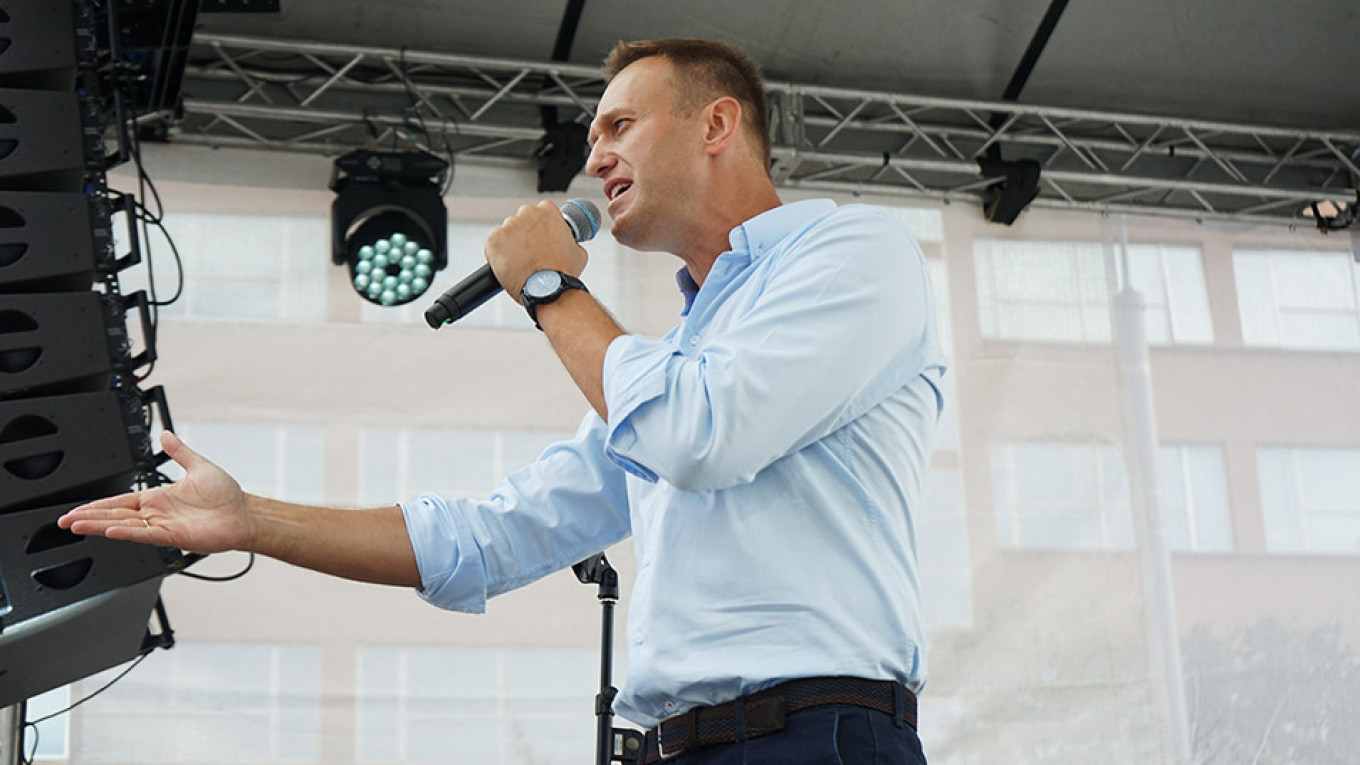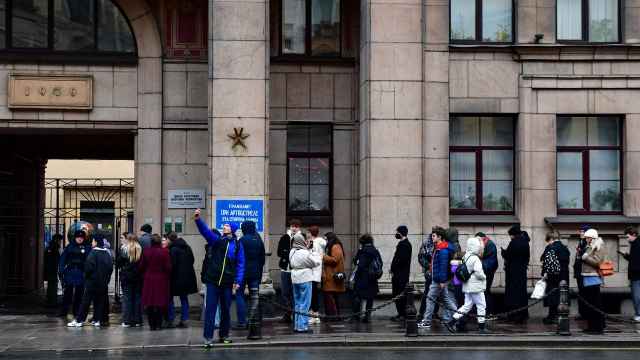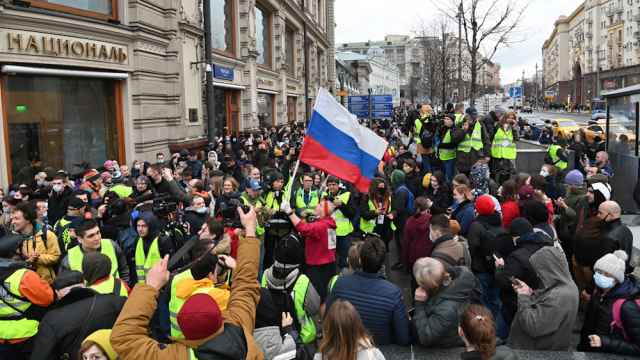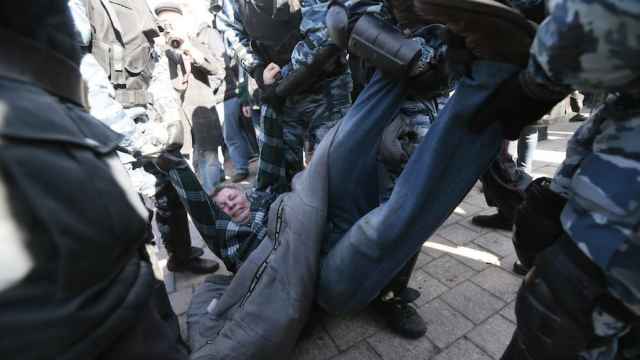Just as Moscow’s mass protests for fair elections had reached their peak in mid-August and seemed to be gathering momentum, Russia’s most prominent opposition leader, Alexei Navalny, called for his supporters to vote strategically rather than take to the streets.
The sudden change of focus has left confusion in its wake and sent an opposition that had coalesced around a unified tactic over four weeks this summer back to its usual fractious state.
“The situation is exactly the same as during Bolotnaya,” said Konstantin Gaaze, an analyst at the Carnegie Moscow Center, referring to infighting among the opposition as the authorities clamped down on the 2011-2012 demonstrations against Russian President Vladimir Putin’s rule.
“Except then they actually had formed an opposition council. This time around there weren’t even any public discussions.”
For five straight weekends this summer starting July 14, protesters had demanded that opposition candidates be allowed to run in Moscow’s Sept. 8 city council elections and called for the release of those facing prison time for having protested. On Aug. 10, spurred on by prominent Russian celebrities, nearly 50,000 people gathered for the largest opposition-led rally since the Bolotnaya protests.
Navalny was released on Friday after serving a 30-day sentence for calling people to join unauthorized demonstrations during one of the rallies in July. Now he’s telling people the best way to dethrone the ruling United Russia party is through tactical voting.
“We must stop endlessly counting people at rallies and remember the goal for which this all began,” Navalny wrote in a blog post from prison earlier this month. “We do not need to hold the largest rally — although if it happens that’s great — but to defeat the party in power in these elections.”
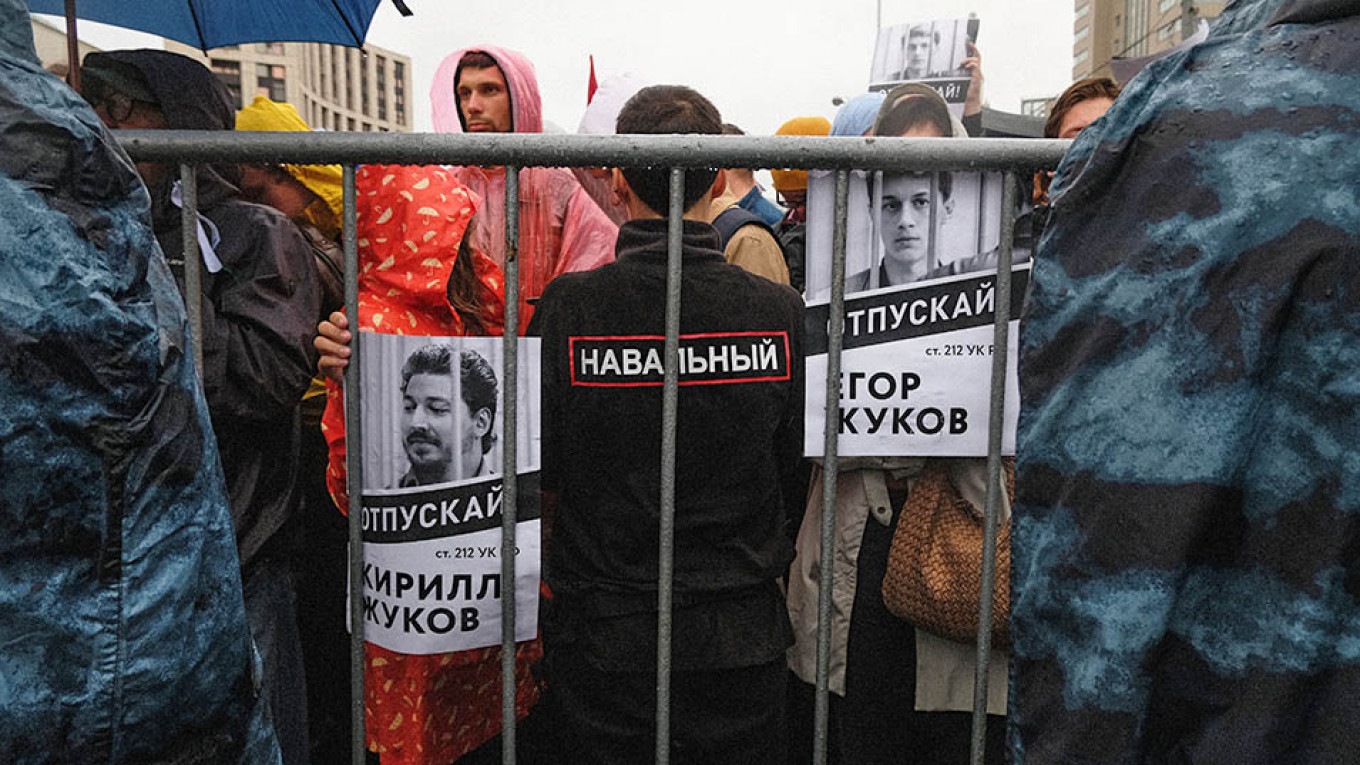
In his post Navalny encouraged voters participating in 20 of the regional elections that are taking place nationwide next month to subscribe to a strategy he launched last November dubbed “Smart Voting.” According to the plan, voters visit a website developed by Navalny’s team, input where they are registered to vote and, on the eve of the elections, are messaged with the name of the candidate they should choose to maximize the chances of the United Russia candidate losing.
Although a host of opposition groups helped catalyze this summer’s protests, Navalny’s team rallied the lion’s share of demonstrators each week by promoting each new demonstration on social media. After Navalny’s appeal, his team stopped calling protesters to new rallies and, over the past two weekends, Moscow’s streets have been almost entirely devoid of protesters.
“This was the plan all along,” said Ivan Zhdanov, the director of Navalny’s Anti-Corruption Foundation and one of the candidates election commission officials blocked from running in the Moscow elections, referring to the emphasis on Smart Voting.
Members of other opposition groups don’t have such a clear view of the strategy.
“Without explaining why, allies of Navalny suddenly started leaving all of the organizational chats,” a municipal deputy who has been helping plan the protests told The Moscow Times on condition of anonymity. Municipal deputies have continued organizing pickets in central Moscow over the past two weekends, but these have drawn insignificant crowds.
Some felt a sense of déjà vu when they read Navalny’s post.
“This is a very important moment — the protest movement may start to split,” Maxim Katz, a political consultant for the Yabloko opposition party, warned on his channel on the Telegram messenger several hours after Navalny’s post was published. “I have seen schisms like this many times.”
The crux of the issue, Katz continued, is that all elections confront Russia’s opposition with four choices. Boycott a vote they see as illegitimate; participate but vote for anyone but the ruling party; participate but vote only for liberals; or participate but vote only for “true” liberals — not those representing the so-called “systemic opposition” parties that in effect do the authorities bidding.
“Each of these decisions is correct in its own way, but each very strongly affects certain important opposition groups and an attempt to choose any of them will lead to an emotional, long and detailed discussion using all of our resources, which will eclipse everything,” Katz wrote.
His prediction has come to pass. In recent days, the pages of Russia’s independent newspapers have been filled with arguments by academics, columnists and politicians both defending and railing against Navalny’s strategy.
Some in the opposition have questioned why Navalny called for a boycott of the March 2018 presidential elections, but is now directing people to vote for the systemic opposition parties. These include the Communist Party, which he has long argued are Kremlin toadies. The party held its own demonstration for fair elections on Aug. 17, flying flags depicting Stalin alongside banners calling for democracy.
“Voting for candidates who do not clearly state their position against repression and the use of criminal prosecution is treason, no matter the political reasoning,” wrote exiled oligarch and founder of the pro-democracy Open Russia political movement Mikhail Khodorkovsky in a post about Smart Voting.
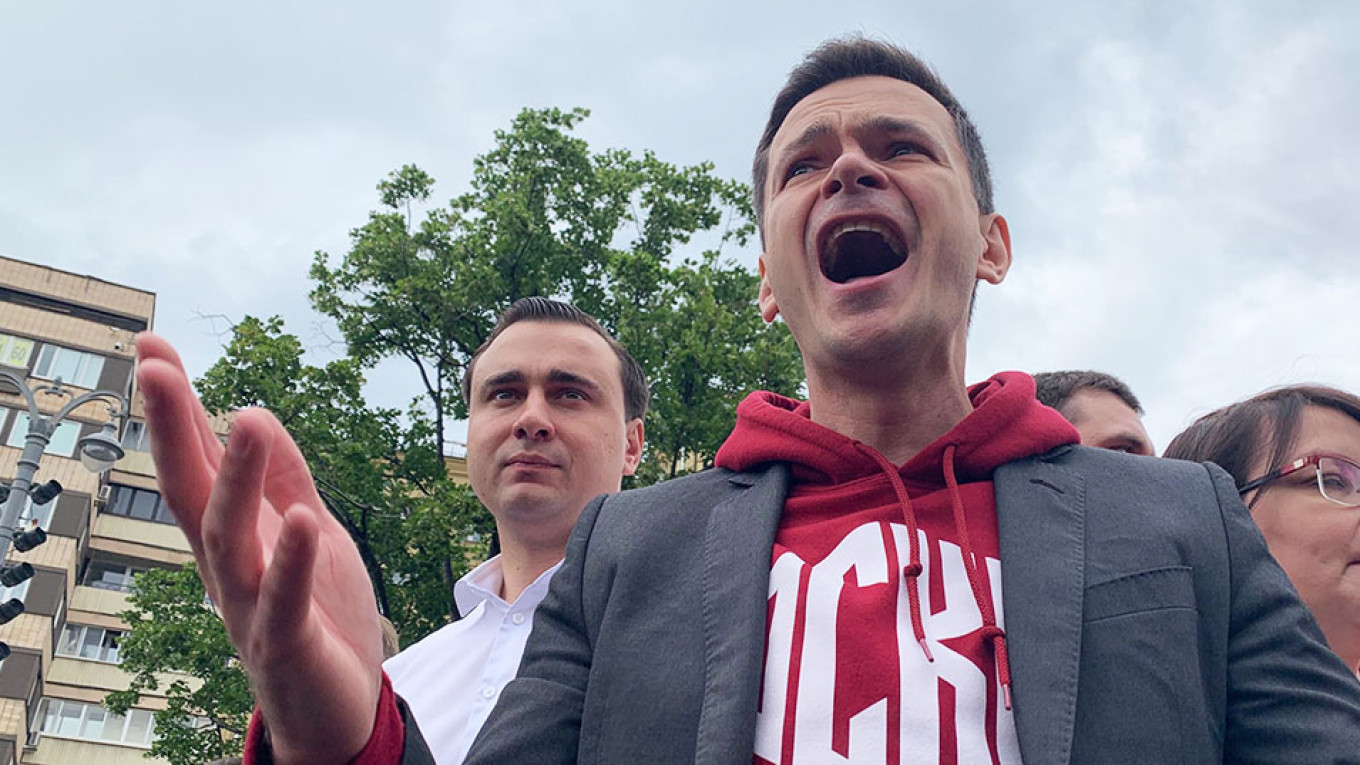
On Monday evening, Navalny joined journalist Yevgenia Albats on the Ekho Moskvy radio station to defend his strategy. Albats, who said she would be boycotting the Moscow city council election, questioned whether liberals should vote for the Communist Party when its head, Gennady Zyuganov, earlier this month called for a State Duma committee to look into whether the opposition protests had been stoked by foreign interference.
“Do we want to cause the authorities stress? Do we want to show them that we don’t trust the party in power? Then we have to work with the Communist Party,” Navalny said.
He pointed to losses by four Kremlin-backed gubernatorial candidates across the country in elections last September as evidence that voters could sweep United Russia out of many offices next month. With opposition candidates excluded from the ballot, his plan is the next best thing, he said.
Navalny allies in recent days have gone on the offensive to back the plan. Ilya Yashin, one of the candidates barred from running in the Moscow city council vote and a leader of the summer protests, pointed to a Communist candidate dropping out of the race the day after Yashin called on his supporters to vote for him as evidence that the authorities were worried.
Zhdanov, who led the protests alongside Yashin, said that it was especially important to focus for the moment on Smart Voting because of the authorities’ heavy-handed response to the protests. Officials tossed nearly all of the protest leaders behind bars for extended periods and opened a criminal case into the Anti-Corruption Foundation for alleged money laundering, freezing the organization's bank accounts and seizing equipment.
But police also detained more than 2,400 people, including at least 14 who now face up to eight years behind bars. Three are students, including Yegor Zhukov, 21, for whom many demonstrators turned out on Aug. 10. Student organizations have gone ahead and planned their own protest for Friday evening demanding that Zhukov and others be freed.
“While the opposition is arguing among themselves, academics and students are the ones showing solidarity with those arrested during this summer’s protests,” Gaaze said.
Last week, Navalny’s team suddenly announced another protest for this Saturday. Lyubov Sobol, a Navalny ally who emerged as the face of the summer’s protests and spent a month on hunger strike, told The Moscow Times that she feels it is important to rally people once again as the election approaches.
Zhdanov, for his part, said he wasn’t aware the demonstration was even being planned as he was focused on Smart Voting — though he noted that protests were still always going to be part of the equation.
“I don’t believe that people won’t come out to the streets again in the future and I think that we will see bigger protests in September,” he said.
Gaaze, however, warned that the lack of clarity could hamper effectiveness, noting that a hallmark of the latest rallies this summer was that students of Moscow’s elite universities had become a key group in the protest movement.
“These people can’t be told like sheep to do this or do that,” he said. “But that’s how this is all coming across.”
A Message from The Moscow Times:
Dear readers,
We are facing unprecedented challenges. Russia's Prosecutor General's Office has designated The Moscow Times as an "undesirable" organization, criminalizing our work and putting our staff at risk of prosecution. This follows our earlier unjust labeling as a "foreign agent."
These actions are direct attempts to silence independent journalism in Russia. The authorities claim our work "discredits the decisions of the Russian leadership." We see things differently: we strive to provide accurate, unbiased reporting on Russia.
We, the journalists of The Moscow Times, refuse to be silenced. But to continue our work, we need your help.
Your support, no matter how small, makes a world of difference. If you can, please support us monthly starting from just $2. It's quick to set up, and every contribution makes a significant impact.
By supporting The Moscow Times, you're defending open, independent journalism in the face of repression. Thank you for standing with us.
Remind me later.



